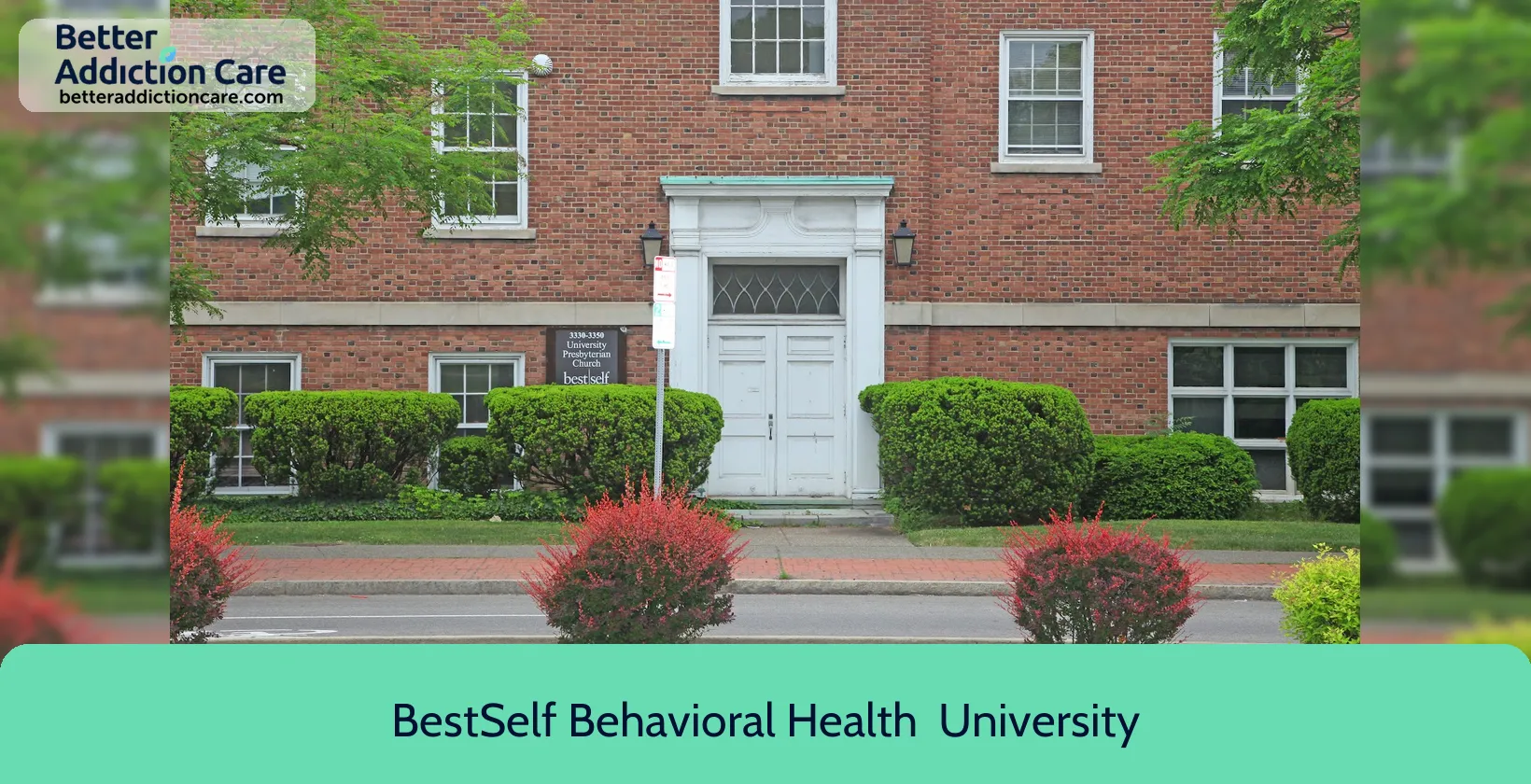BestSelf Behavioral Health - Franklin Recovery PROS

Overview
BestSelf Behavioral Health - Franklin Recovery PROS is a mental health treatment center for people seeking treatment near Erie County. As part of their treatment modalities for recovery, BestSelf Behavioral Health - Franklin Recovery PROS provides couples/family therapy, group counseling, and cognitive behavioral therapy during treatment. BestSelf Behavioral Health - Franklin Recovery PROS is located in Buffalo, New York, accepting cash or self-payment for treatment.
BestSelf Behavioral Health - Franklin Recovery PROS at a Glance
Payment Options
- Cash or self-payment
- Medicaid
- Medicare
- State mental health agency (or equivalent) funds
- Sliding fee scale (fee is based on income and other factors)
Assessments
- Screening for tobacco use
- Comprehensive mental health assessment
- Comprehensive substance use assessment
Age Groups
- Young adults
- Adults
- Seniors
Ancillary Services
- Family psychoeducation
- Illness management and recovery
- Psychosocial rehabilitation services
- Supported employment
- Vocational rehabilitation services
Highlights About BestSelf Behavioral Health - Franklin Recovery PROS
6.77/10
With an overall rating of 6.77/10, this facility has following balanced range of services. Alcohol Rehabilitation: 8.00/10, Drug Rehab and Detox: 6.00/10, Insurance and Payments: 6.00/10, Treatment Options: 7.09/10.-
Alcohol Rehabilitation 8.00
-
Treatment Options 7.09
-
Drug Rehab and Detox 6.00
-
Insurance and Payments 6.00
Treatment At BestSelf Behavioral Health - Franklin Recovery PROS
Treatment Conditions
- Mental health treatment
- Alcoholism
- Substance use treatment
Care Levels
- Outpatient
Treatment Modalities
- Couples/family therapy
- Group counseling
- Cognitive behavioral therapy
- Dialectical behavior therapy
- Integrated Mental and Substance Use Disorder treatment
Ancillary Services
Languages
- Sign language services for the deaf and hard of hearing
- Spanish
Special Programs
- Clients with co-occurring mental and substance use disorders
- Clients who have experienced trauma
- Persons 18 and older with serious mental illness (SMI)
- Persons with post-traumatic stress disorder (PTSD)

Additional Locations
Get Help Now
Common Questions About BestSelf Behavioral Health - Franklin Recovery PROS
Contact Information
Other Facilities in Buffalo

6.62

7.65

6.71

7.00

7.36

7.30

7.30

7.33
DISCLAIMER: The facility name, logo and brand are the property and registered trademarks of Northern Erie Clinical Services - Outpatient, and are being used for identification and informational purposes only. Use of these names, logos and brands shall not imply endorsement. BetterAddictionCare.com is not affiliated with or sponsored by Northern Erie Clinical Services - Outpatient.

